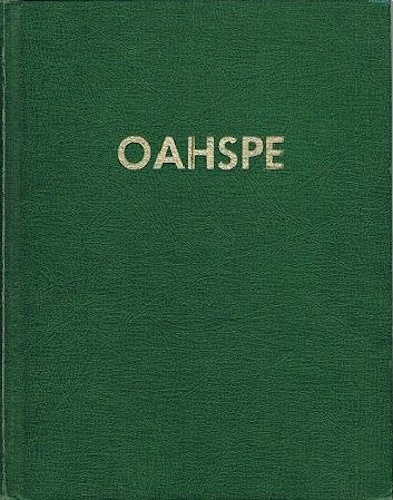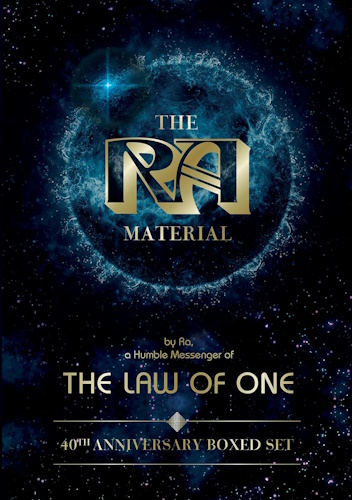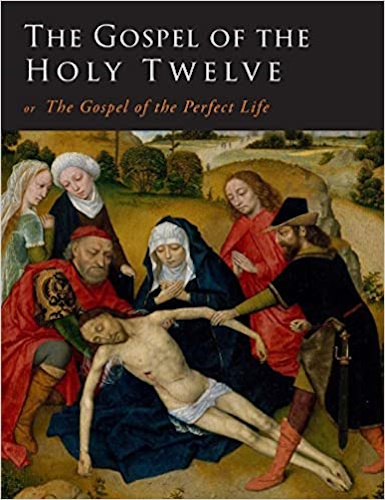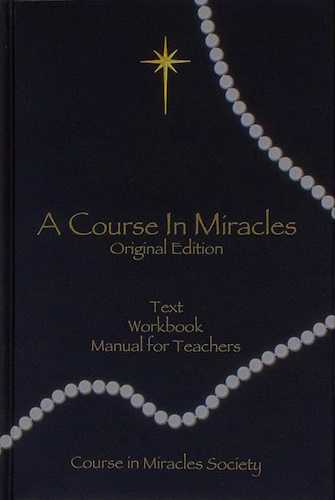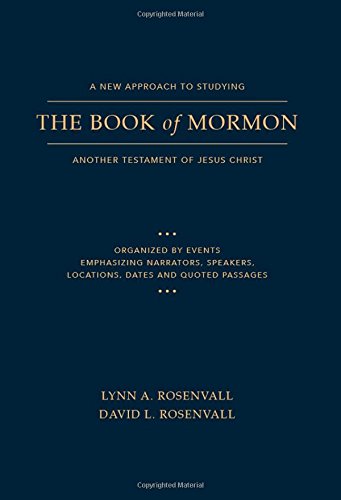
![]()
![]()
Book of Wars Against Jehovih
Chapter LII
1. OF the land of Egupt, the above sufficeth; and of Parsi'e and Heleste these things are the chief, as regardeth the dominion of Osiris, Baal and Ashtaroth, to wit:
2. Because of the persecutions of Faithists, and shepherd kings, and Listians, these people fled into Parsi'e and Heleste for hundreds of years, and they built cities and established kingdoms.
3. And none of these accepted the Lord, or God, or De'yus, but for the most part worshipped the Great Spirit.
p. 450
Nevertheless, they were not Faithists in purity; for they engaged in war and lived not in communities, with rab'bahs as rulers, but dwelt together after the manner of warriors.
4. To Baal and Ashtaroth was committed the duty of subjugating these people unto Osiris, Savior of mortals. So Baal and Ashtaroth, finding them stubborn in the worship of the Great Spirit, finally resolved to make them destroy one another, after the same manner as Te-in, in Jaffeth, and Sudga, in Vind'yu; and they asked Osiris for armies of warring angels for that purpose. Osiris gave them the following great angel generals and high captains, to wit:
5. Jah, Apollon-ya, Petoris, Pluton-ya, Hi-ram, Ben, Yube, Ali-jah, Ares, Sa'wang, T'crono, Afro-dite, Argo, Oyeb, Nadar, Abel, Said, Ar-te-mis, Yac-ta-roth, Wab, Josh and Haur; and besides these there were the following deserters from Te-in and Sudga, to wit: Clue, Jon, I-sa-ah, Yam-yam, Luth, Bar, Hote, Ki-dom, Athena, Hira, Oke-ya-nos, Hermes, Posee-ya-don, Ura-na, Hace, T'sodus, Rac-Rom, Mi-kak, Tol, Taes, Wowouski, Sur, Ala-jax and Hesmoin.
6. And Baal and Ashtaroth cast lots for each of the above generals and captains, turn about they chose, until they were divided equally between them. And Osiris gave to Baal and Ashtaroth, each, five hundred million warring angels. And thus armed, they descended to the earth, to the objectionable regions, of Parsi'e and Heleste. In those days these great divisions of the earth were divided into many nations and kingdoms.
7. And a kingdom was not measured according to the land, but according to the number of cities that paid tribute to the central city; though some kingdoms had but one city.
8. These, then, are some of the largest cities that Baal and Ashtaroth determined to destroy, to wit: Su-yan, with five tributary cities; Lakao, with two tributaries; Hangun; with eight tributaries; Waas with three; Lawga, with six; Tol, with six; Sun, with five; Tos, with four; Troy, with six; Abed, with two; Athena, with twelve; Hess, with four; Ituna, with twelve; Fado, with ten; Tuna, with seven; and Wa'ke'at, with seven. And besides these there were many large cities without any tributary cities, which were also doomed to everlasting destruction.
9. The first great cities thus turned to war on each other were Haugun and Lowga; Ashtaroth choosing Haugun and Baal choosing Lowga.
10. These two cities were both of more than four hundred years' standing, and contained each a half million inhabitants, besides their tributary cities. Tojak was king of Haugun; he was the son of Soma, who was the son of Atyis, the necromancer. And of Lowga, Turwea was king; he was the son of Diah, son of Bawn, the philosopher.
11. When Baal and Ashtaroth, with their armies from heaven, came near to these cities, they halted and built a temporary kingdom in the mountains of Zoe.
12. Baal said to Ashtaroth: Behold, thou has had the choice of cities, give thou me the first assault?
13. Ashtaroth said: On thine own terms shall these battles be, and I will beat thee. To it, then; set on Lowga.
14. Baal went to Turwea in his dreams and told him his son was waylaid by the people of Haugun, and, moreover, that Tojak had determined to come upon him and possess the city. When Turwea awoke, he was troubled about his dream, and he inquired of the oracle concerning the matter. Ashtaroth had possession of the oracle, and she answered the king, saying: Thou art of the seed of the Faithists, why fearest thou for a dream? Have a caution of thy dreams; tell not thy son, for this day he goeth on the hunt, and thy words might bring about even that which otherwise might not be. The king went his way, but Ashtaroth sent inspiring spirits to the king, saying: To caution thy son, that would be wisdom. And the king went and cautioned his son.
15. Ashtaroth then went to Tojak's wife, and gave her a dream that the Prince of Lowga went on a hunt, to all appearances, but came near Haugun for a very different matter, which was no less than the slaying of herself and husband. The queen awoke suddenly, and in fear, and told the king her dream. Tojak said:
16. Foolish woman; it was but the fault of thy diseased blood, which, coursing the heart, gave thee a foolish dream. Tojak dismissed the matter. On the next day, the angels kept inspiring the queen to send her servants to the place of her dreams, to which she acceded; and her servants were armed with spears, and instructed to kill whoso came in their way, as if by accident.
17. Thus it came to pass that Turwea's son was slain. Turwea inquired of the oracle, and was answered by Ashtaroth, saying: Why comest thou to me for comfort; is not thy son dead
p. 451
by thine own fault? I said unto thee: Mention not the matter of thy dream to thy son, for oft it happeneth that telling of a thing bringeth it to pass.
18. Turwea said: I am justly rebuked, O Apollo-ya! But tell me, thou that knowest all things, since one part of my dream hath come true, may not the other part, and, of a truth, Tojak come to possess my kingdom? Ashtaroth said: If I tell thee, thou wilt blab it about, and do nothing in thine own defence. Turwea then made oath to obey the oracle; whereupon she commanded him to march with all his army against Tojak, and suddenly demand satisfaction in ten thousand lives, to balance the loss of the prince.
19. This ended Ashtaroth's part with the city of Lowga; and now she went to Haugun, whilst Baal took charge of Lowga, sending his legions of angels to the people of Lowga, to inspire them with madness because their prince was slain.
20. Ashtaroth, on her part, now assumed control of the oracle in Haugun, and sent her warring angels to the people of the city, advising them of the justice of slaying the prince, because he was come, not on a hunt, but to slay the king and queen. And Ashtaroth, further, told the king, Tojak: Try thou me as to my truthfulness: Behold, in two days the warriors of Turwea will be at thy city's gates; be thou ready for them and drive them hence, or lo, thy city wall will be reduced to dust and ashes.
21. Of course the prophecy of Ashtaroth came true, and Tojak now believed he was in the protection of the Gods. The queen said unto him: A matter of weight is on my mind, O king: I commanded my servants to slay the prince, for the Gods showed it to me that only by this could thy life and mine be preserved.
22. The king, Tojak, justified the queen, saying: Thou hast been the preserver of my life and thine.
23. Baal, God of Lowga, thus marched the mortal armies against the city of Haugun, whilst Ashtaroth marched the armies of the latter place to battle against them.
24. And thus, as mortals play a game with sticks and pegs, so played this God and Goddess a game with these mortals of these two great cities; played give and take to see the battles lost or won; and they used their legions of angels to inspire the mortals on, or to make them at times turn and flee. And whilst the Gods rested, amusing themselves by feasting and by talking over the sport of mortal death, the two great cities would also gain a little rest, but only to renew the bloody work.
25. For four years the gods and angels kept these two mortal cities at war; and though they lay a day's journey apart, all the way was strewn with the bones of the slain. And in four years they were reduced to dust and ashes; and as to the people of the last year, for the most part, they were inoculated with the poisoned air of the dead, and they died also. And yet it came to pass, Baal beat Ashtaroth in the battle of death, for he caused all his people to be slain, whilst yet a few of Ashtaroth's remained.
26. Thus did Baal and Ashtaroth pursue the other great cities of Parsi'e and Heleste. And the time of the destruction of any two or three cities varied from two years to ten years. For the destruction of Athena and Troy it required twelve years. And for the destruction of Ituna and Fado it required eleven years. Betwixt Su-gun and Lakao it required two years to bring them to war. Betwixt Athena and Troy it required three years to bring them to war. Two hundred vampires, angels of lust, were set upon a prince of Troy, and in desperation he was driven to kidnap an Athenian princess, who was led to exposure by Baal's angel hosts. In this great battle Ashtaroth won the game, having succeeded in having the whole of the Trojans destroyed.
27. In the war betwixt Tos and Sun, which lasted nine years, it was an even game, for both cities were entirely destroyed and all the people in them, and also their tributary cities as well. But the city of Tol was destroyed within itself, for there was no city near enough to war upon it. The angels brought virus from the dead of other regions, and inoculated the breath of the people of Tol, and their flesh festered, and they died of themselves without war.
28. The whole time of destruction was one hundred and sixty years; and after that Parsi'e and Heleste were wasted and desert, and wild beasts coursed the country far and near.
29. Osiris had said: I will make the land of Egupt the greatest country in the world; I will have the place of my dominion near at hand. Satan had said to Osiris: If thou destroy not Parsi'e and Heleste, behold, Baal and Ashtaroth will rebel against thee, choosing these lands for their own kingdoms.
30. But both satan and Osiris, who now falsely styled himself God of heaven
p. 452
and earth, were powerless to prevent the march of Jehovih's hand. For as He gave liberty unto all His creatures, and as Osiris had fostered the idea of being sole ruler of earth and heaven, even so the seed of his own sowing took root in Baal and Ashtaroth. And they formed a compact with each other and seceded from Osiris after all. And in order to determine what share of the earth should be theirs, a war in heaven ensued between the three Gods, and Te-in and Sudga joined in also.
-
Urantia Book, 44:0.11 - The Celestial Artisans
Never in your long ascendancy will you lose the power to recognize your associates of former existences. Always, as you ascend inward in the scale of life, will you retain the ability to recognize and fraternize with the fellow beings of your previous and lower levels of experience. Each new translation or resurrection will add one more group of spirit beings to your vision range without in the least depriving you of the ability to recognize your friends and fellows of former estates.
-
Princess Bride 1987 Wallace Shawn (Vizzini) and Mandy Patinkin (Inigo Montoya)
Vizzini: HE DIDN'T FALL? INCONCEIVABLE.
Inigo Montoya: You keep using that word. I do not think it means what you think it means. -
Urantia Book, 117:4.14 - The Finite God
And here is mystery: The more closely man approaches God through love, the greater the reality -- actuality -- of that man. The more man withdraws from God, the more nearly he approaches nonreality -- cessation of existence. When man consecrates his will to the doing of the Father's will, when man gives God all that he has, then does God make that man more than he is.
-
Urantia Book, 167:7.4 - The Talk About Angels
"And do you not remember that I said to you once before that, if you had your spiritual eyes anointed, you would then see the heavens opened and behold the angels of God ascending and descending? It is by the ministry of the angels that one world may be kept in touch with other worlds, for have I not repeatedly told you that I have other sheep not of this fold?"
-
Urantia Book, Foreword - 0:12.12 - The Trinities
But we know that there dwells within the human mind a fragment of God, and that there sojourns with the human soul the Spirit of Truth; and we further know that these spirit forces conspire to enable material man to grasp the reality of spiritual values and to comprehend the philosophy of universe meanings. But even more certainly we know that these spirits of the Divine Presence are able to assist man in the spiritual appropriation of all truth contributory to the enhancement of the ever-progressing reality of personal religious experience—God-consciousness.
-
Urantia Book, 1:4.3 - The Mystery Of God
When you are through down here, when your course has been run in temporary form on earth, when your trial trip in the flesh is finished, when the dust that composes the mortal tabernacle "returns to the earth whence it came"; then, it is revealed, the indwelling "Spirit shall return to God who gave it." There sojourns within each moral being of this planet a fragment of God, a part and parcel of divinity. It is not yet yours by right of possession, but it is designedly intended to be one with you if you survive the mortal existence.
-
Urantia Book, 1:4.1 - The Mystery Of God
And the greatest of all the unfathomable mysteries of God is the phenomenon of the divine indwelling of mortal minds. The manner in which the Universal Father sojourns with the creatures of time is the most profound of all universe mysteries; the divine presence in the mind of man is the mystery of mysteries.
-
Urantia Book, 1:4.6 - The Mystery Of God
To every spirit being and to every mortal creature in every sphere and on every world of the universe of universes, the Universal Father reveals all of his gracious and divine self that can be discerned or comprehended by such spirit beings and by such mortal creatures. God is no respecter of persons, either spiritual or material. The divine presence which any child of the universe enjoys at any given moment is limited only by the capacity of such a creature to receive and to discern the spirit actualities of the supermaterial world.
-
Urantia Book, 11:0.1 - The Eternal Isle Of Paradise
Paradise is the eternal center of the universe of universes and the abiding place of the Universal Father, the Eternal Son, the Infinite Spirit, and their divine co-ordinates and associates. This central Isle is the most gigantic organized body of cosmic reality in all the master universe. Paradise is a material sphere as well as a spiritual abode. All of the intelligent creation of the Universal Father is domiciled on material abodes; hence must the absolute controlling center also be material, literal. And again it should be reiterated that spirit things and spiritual beings are real.
-
Urantia Book, 50:6.4 - Planetary Culture
Culture presupposes quality of mind; culture cannot be enhanced unless mind is elevated. Superior intellect will seek a noble culture and find some way to attain such a goal. Inferior minds will spurn the highest culture even when presented to them ready-made.
-
Urantia Book, 54:1.6 - True And False Liberty
True liberty is the associate of genuine self-respect; false liberty is the consort of self-admiration. True liberty is the fruit of self-control; false liberty, the assumption of self-assertion. Self-control leads to altruistic service; self-admiration tends towards the exploitation of others for the selfish aggrandizement of such a mistaken individual as is willing to sacrifice righteous attainment for the sake of possessing unjust power over his fellow beings.
-
Urantia Book, 54:1.9 - True And False Liberty
How dare the self-willed creature encroach upon the rights of his fellows in the name of personal liberty when the Supreme Rulers of the universe stand back in merciful respect for these prerogatives of will and potentials of personality! No being, in the exercise of his supposed personal liberty, has a right to deprive any other being of those privileges of existence conferred by the Creators and duly respected by all their loyal associates, subordinates, and subjects.
-
Urantia Book, 54:1.8 - True And False Liberty
There is no error greater than that species of self-deception which leads intelligent beings to crave the exercise of power over other beings for the purpose of depriving these persons of their natural liberties. The golden rule of human fairness cries out against all such fraud, unfairness, selfishness, and unrighteousness.
